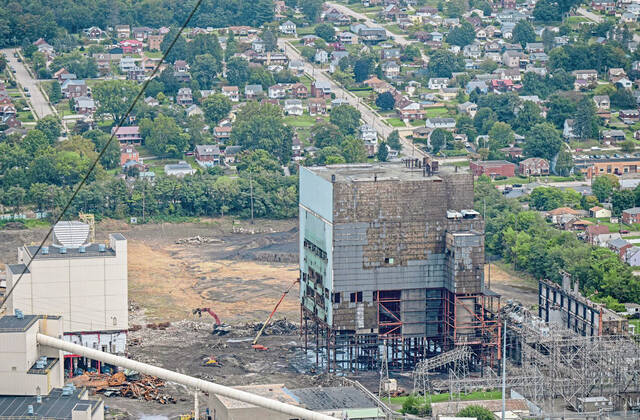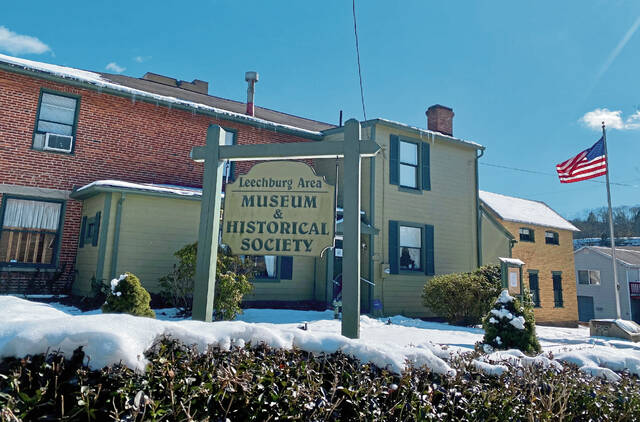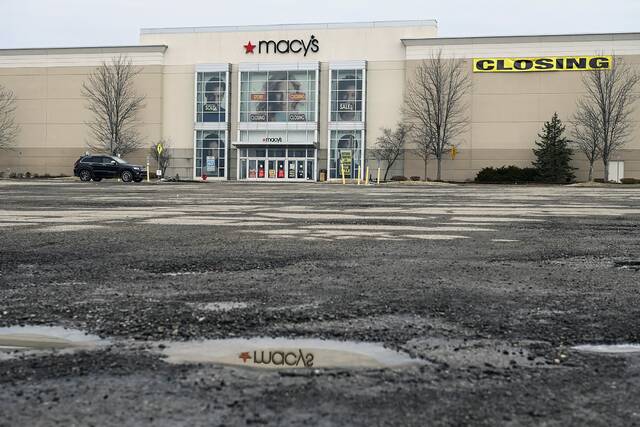A Texas-based toxicologist testified Tuesday that health complaints reported by some Springdale residents following the June implosion of two towering smokestacks at the former power plant there are consistent to exposure of materials and fibers from the implosion.
But the defense attorneys for the landowner and demolition company attempted to poke holes in the scientist’s testimony.
Testimony continued in the case of 16 Springdale residents seeking to stop an implosion of the boiler house at the former Cheswick Generating Station.
S. Thomas Dydek, a Texas-based toxicologist who was called as an expert witness by the plaintiffs, continued his testimony on toxicology and public health.
The plaintiffs allege that the June 2 implosion of the two smokestacks caused harm to their community’s health and safety, as well as the surrounding communities.
They argue that an implosion of the boiler house would cause additional harm.
Allegheny County Common Pleas Judge John T. McVay Jr. is presiding over the case. The proceedings will resume Wednesday morning.
Dydek said his opinion, based on a reasonable degree of scientific certainty, was that the types of health effects reported by the plaintiffs — respiratory complaints — are consistent to exposure of materials and fibers from the implosion.
The plaintiffs’ attorneys and Dydek noted that Controlled Demolition Inc. was involved in an implosion at the Crawford Power Plant in Chicago in 2020. Afterward, the city established more rules and regulations around demolition by implosion.
Dydek said he believed those types of regulations would reduce health risks to people living near an implosion. After watching a video of the June 2 implosion, Dydek said the event caused health risks to those nearby, as could an implosion of the boiler house.
When the defense attorneys questioned Dydek, he testified he has never been to Springdale, nor has he conducted an air dispersion modeling, which is a mathematical formulation to characterize the atmosphere that disperses particles emitted by a source.
Dydek also said that of the samples that were taken, no asbestos was detected.
He wrote in a report that, according to Jon Pina — an expert witness who testified for the plaintiffs Monday — a mechanical demolition of the boiler house can be done safely and would cause less dust than an implosion demolition, thus reducing health risks to people living nearby.
The defense argued that Dydek is not a structural engineer and instead relied on Pina, who is not an engineer nor, they argued, a demolition expert. Dydek relied on Pina’s report, but Dydek admitted he had never spoken to Pina while he was building his own reports.
The defense attorneys also questioned sampling methods and analysis of metals recorded from nearby properties.
Dydek said he relied on the testing agencies doing their job properly. He also said he did not have a baseline of metal levels pre-implosion, such as possible lead paint or chips from the properties, and he admitted that arsenic levels are not uncommon to be found in Southwestern Pennsylvania soil.
Defense attorneys also brought up the site’s 50-year history as a coal-fired power plant and its emissions over the years.








